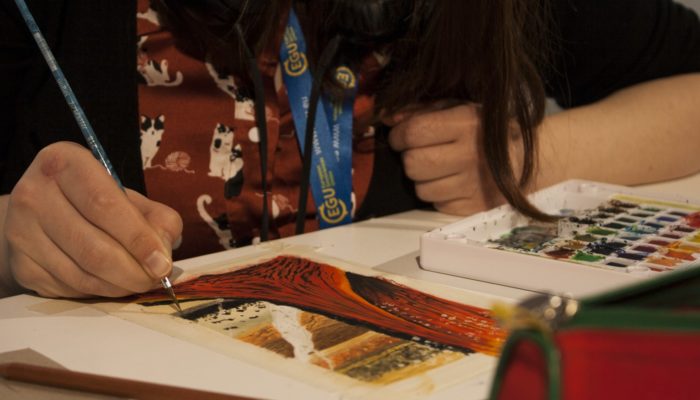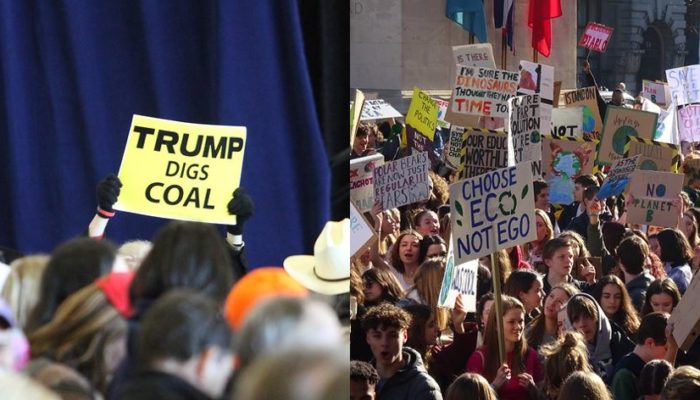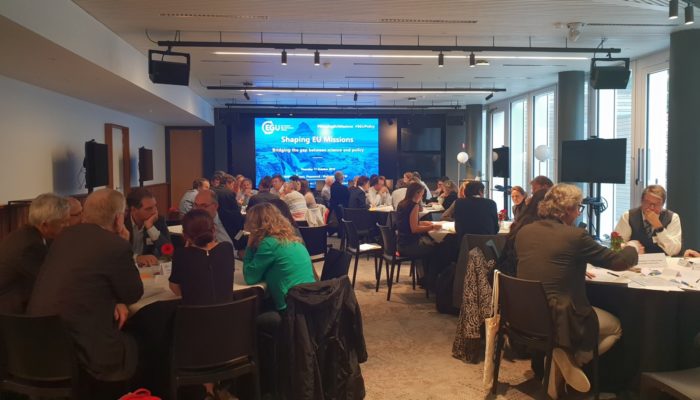This month’s GeoPolicy blog post is a Q&A about the EGU’s second annual science-policy event, Shaping EU Missions: bridging the gap between geoscience and policy which was hosted in Brussels on October 17 2019. The EGU has an annual event outside of the General Assembly?? Yes! Except this one is much smaller with about 70 participants and relatively new (only starting in 2018). Th ...[Read More]
EGU General Assembly 2020: Apply to be our next artist in residence!

Calling all artists interested in the geosciences! For the third year in a row, the European Geosciences Union (EGU) will be providing artist in residence opportunities at its annual General Assembly. Our residency programme provides artists with an opportunity to engage with scientific research in a dynamic setting and be inspired by new scientific discoveries. Researchers, on the other hand, can ...[Read More]
Pole to Paris: Communicating climate change in a divided society

The recent European Parliament election illustrated how divided Europe has become politically and intergenerationally. While the established parties lost their ground, both far-right populistic, anti-EU and liberal, green pro-EU parties grew in popularity among voters1, with the younger generation favoring the latter and the generations above the former2. What role is there for science in this div ...[Read More]
GeoPolicy: What really drives political decision-making?
On July 17 2019, the EU Commission’s Joint Research Centre (JRC) published a report highlighting how thinking is challenged by today’s information environment and the role of evidence-informed policymaking in a well-functioning democracy. Titled Understanding our political nature, the report was produced with the assistance of 60 international experts in the humanities, behavioural and socia ...[Read More]


